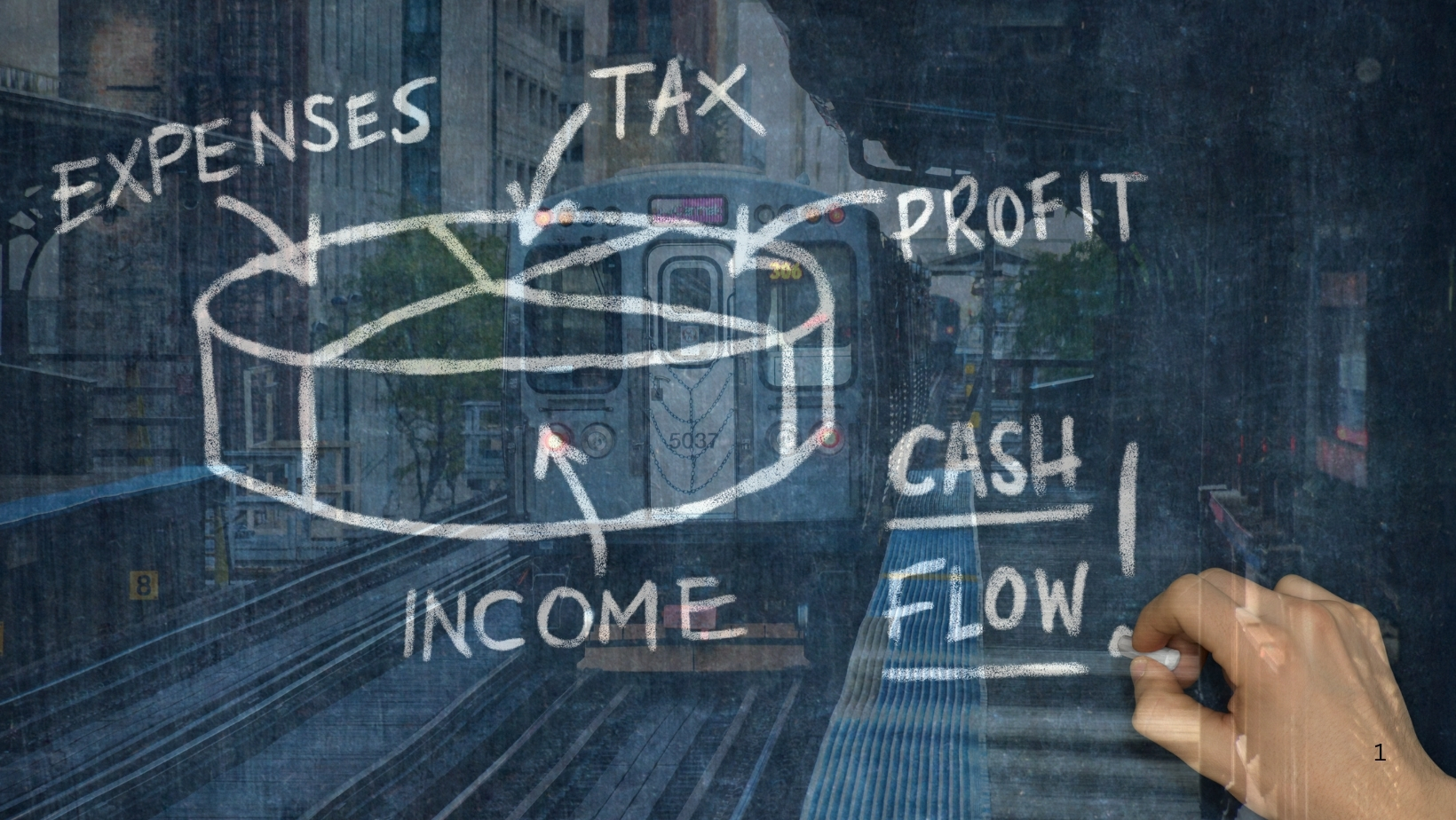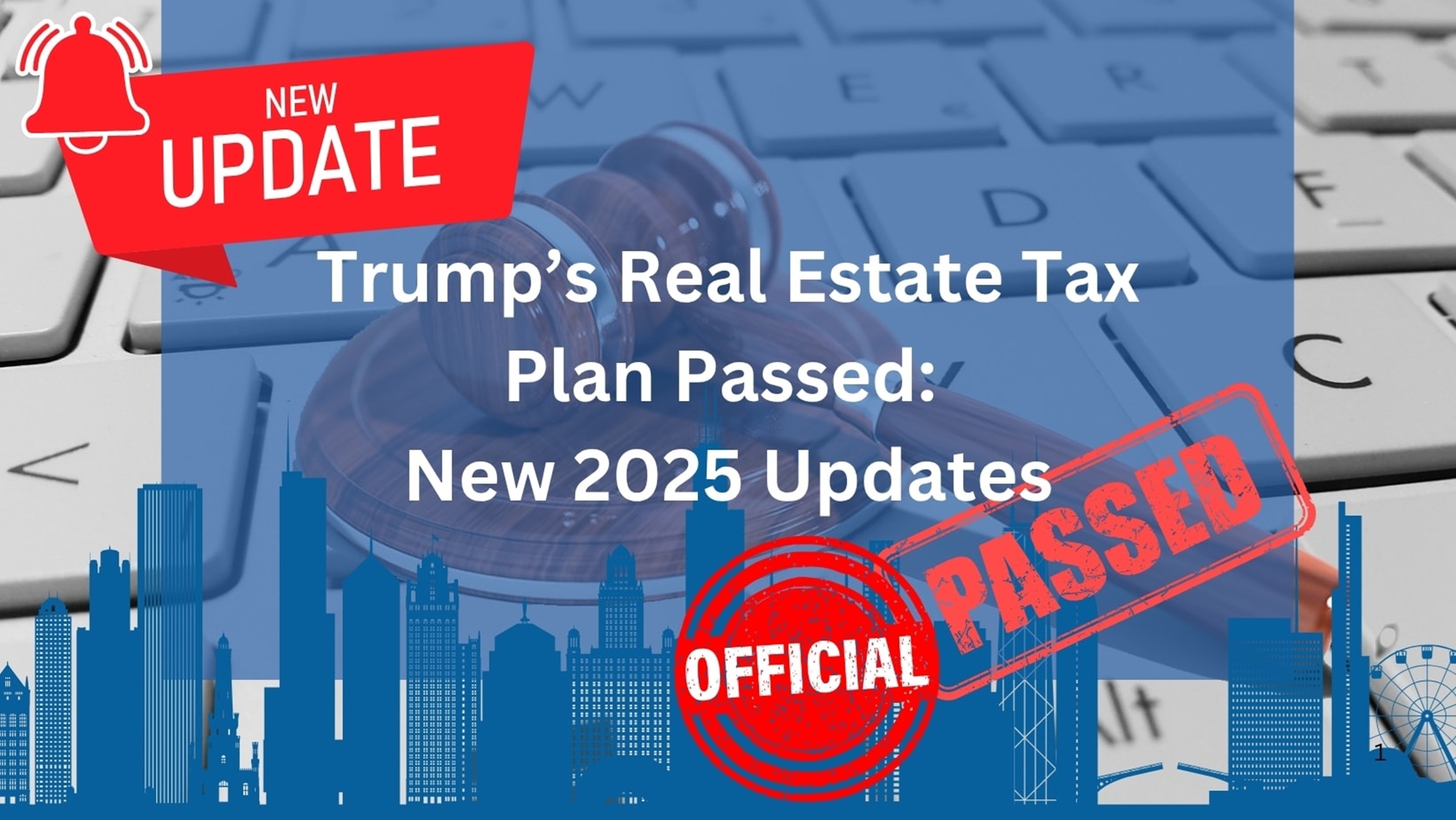What Chicago Landlords Should Know Now That the One Big Beautiful Bill is Officially Law
In June, we broke down Trump’s proposed real estate tax plan and what it could mean for landlords and investors. At the time, the “One Big Beautiful Bill Act” (OBBBA) was still making its way through Congress. The House passed the bill before it was signed into law by President Trump on July 4, 2025.
This updated post revisits our original analysis and shares what’s changed, what’s been confirmed, and what Chicago landlords should be doing right now to stay ahead of the curve. Landlords should also review their tax return process to ensure compliance with the new law’s requirements.
Let's dive in!
Introduction to the Trump Tax Plan in Case You Missed It!
The Trump Tax Plan—officially known as the One Big Beautiful Bill Act—marks one of the most sweeping tax and spending bills in recent history. Signed into law by President Trump on July 4, 2025, this legislation is designed to deliver substantial tax breaks to working families, seniors, and business owners, while also aiming to simplify the tax code and stimulate economic growth.
At its core, the bill extends and expands several popular tax provisions. The child tax credit is enhanced, making it easier for families to reduce their taxable income and keep more of their earnings. The standard deduction is increased, allowing more taxpayers to benefit from simplified filing and lower tax bills. For individuals and businesses alike, the plan introduces or expands tax deductions for auto loan interest, rental income, and charitable contributions—helping to ease the tax burden and encourage investment.
However, these tax breaks come with a trade-off: the bill is projected to reduce federal revenues, contributing to a higher national debt over time. As a comprehensive tax plan, the One Big Beautiful Bill Act represents a major shift in how Americans approach their tax returns, offering new opportunities for savings while also raising important questions about fiscal responsibility and the long-term impact on government spending.
What’s Official: Key Tax Changes in the OBBBA

The final legislation, known as the One Big Beautiful Bill Act, is a comprehensive jobs act designed to stimulate economic growth through significant tax reforms and policy changes. It locks in many investor-friendly tax policies and introduces several new ones that could directly impact property owners, small business landlords, and real estate investors.
Key points include:
Introduction of tax cut provisions that reduce federal tax liability for many individuals and businesses, differing from previous tax hikes that increased the burden on certain sectors, such as private colleges' endowment income.
Adjustments to federal tax rates, with implications for estate planning, rental income, and deductions.
Changes in federal funding allocations, potentially affecting public programs like Medicaid and Planned Parenthood due to shifts in government budget priorities.
These legislative changes highlight the importance of understanding new federal tax provisions and their broader economic and social impacts.
TCJA Extensions Made Permanent
Lower federal income tax brackets (10%–37%)
Increased standard deduction ($16,000 individual / $32,000 joint filers starting 2026)
Qualified Business Income (QBI) deduction: 20% deduction for pass-through entities
Estate tax exemption: $15 million per person, indexed to inflation
Alternative minimum tax (AMT): Key provisions related to the AMT are maintained under the new law, with certain thresholds and exemptions extended as part of the broader tax reform.
Gift tax exemption: The gift tax exemption is aligned with the estate tax exemption, also indexed to inflation, and recent changes have increased the exemption levels for wealth transfer and estate planning.
Payroll taxes: The new law does not change payroll tax rates, but payroll taxes continue to factor into overall market income and after-tax income calculations, especially for landlords and investors.
Landlord-Focused Tax Breaks

Immediate expensing of capital improvements for year-one savings
Expanded deductions for property management, maintenance, insurance, legal, and accounting services, which are considered ordinary and necessary expenses and may qualify as deductible rental expenses
Auto loan interest deduction up to $10,000/year for vehicles used in business
Under the new law, landlords can now deduct a wider range of rental expenses, including costs associated with managing, maintaining, and holding rental property. If tenants pay certain expenses, such as utilities or repairs, these expenses are treated as rental income for the landlord, but they may also be deductible rental expenses if they qualify as ordinary and necessary expenses.
2025 Additions You Shouldn’t Miss
Bonus Depreciation Made Permanent: Fully expense improvements and depreciable assets placed in service after Jan. 19, 2025
Interest Deduction Based on EBITDA: Deduct more interest by excluding depreciation and amortization
QBI Deduction Expanded: Income thresholds raised to $75K (single) / $150K (married); new $4,000 minimum deduction for small active businesses
SALT Deduction Cap Raised: Up to $40,000 for joint filers under $500,000 income
Tax-Free Overtime and Tips: Up to $25,000 excluded for qualifying employees—relevant for short-term rental staff. Tip income and overtime pay are now eligible for new tax credits or exclusions, providing additional tax benefits for employees who receive tips or overtime compensation.
Senior Credit: $6,000 deduction for taxpayers 65+ with income under $150,000
“Baby Bonus” Accounts: $1,000 tax-deferred accounts for children born 2025–2028
Deduct Interest Paid on Rental Property Loans: Landlords can deduct interest paid on mortgages or other loans related to residential rental property, including refinancing, which helps reduce taxable income. The ability to deduct interest paid applies to both primary and mixed-use rental properties, with apportionment as needed.
Tax Credits: Expanded and new tax credits are available for renewable energy projects, electric vehicles, and individual taxpayers, with recent legislative changes affecting eligibility and benefit amounts.
What This Means for Chicago Landlords

In a city where property taxes and local tax burdens are high, and maintenance is real work, these updates matter, especially for Chicago landlords who rely on local tax deductions to offset costs. The new law directly impacts local tax deductions, particularly for those who own residential rental property, by modifying the cap on state and local tax (SALT) benefits. Additionally, gross income from rental activities may be affected by these provisions, influencing how much income is subject to tax after accounting for deductible expenses.
Increased Cash Flow Potential
Immediate expenses and larger deductions mean you may see a real year-one financial boost—especially for value-add rehabs. If your rental agreement includes lease payments with an option to buy, those lease payments are generally treated as rental income until the tenant exercises the purchase option. Additionally, when a tenant pays for certain expenses directly, such as utilities or repairs, these amounts may be considered rental income for tax purposes.
Easier Portfolio Growth
2-flats and 3-flats are still producing solid rent-to-price ratios. Pair that with fewer active buyers and new tax incentives, and you may be looking at a rare moment of leverage.
Under the new law, interest payments on loans used for new property acquisitions can be deducted from your taxable income, further enhancing the financial benefits of leveraging real estate investments.
More Buying Power
Higher deductions + fewer competing buyers = rare opportunity before demand rebounds. The benefits of these higher deductions can vary significantly across the income scale, with high earners often seeing the greatest tax savings.
Key Takeaways for Chicago Landlords
Accelerate renovations and improvements to benefit from bonus depreciation
Use leverage wisely with improved interest deduction rules
Review your entity structure for QBI and SALT strategy
Talk to your CPA about estate planning under new exemption rules
Remember to include the fair market value of any property or services received in lieu of rent as taxable income
These changes are permanent, not sunset provisions—so long-term planning just got a lot more dependable.
Maximize Your Deductions in 2025

Beyond the OBBBA, these landlord tax deductions remain critical for reducing taxable income. Understanding your obligations when paying taxes on rental income is essential, as it ensures you take advantage of all available deductions and comply with tax laws.
Top Tax Deductions for Rental Property Owners
Mortgage interest
Deduct interest paid on loans for rental property, including mortgages and loans for improvements or operating expenses
Property taxes
Insurance premiums
Cleaning costs (e.g., turnover cleaning)
Repairs and maintenance
Depreciation of building and improvements
Property management fees
Administrative costs related to property management
Legal and professional fees
Travel and mileage related to rental upkeep
Deductible rental expenses, including certain expenses paid by tenants on behalf of the landlord
Pro Tips:
Rent your property fewer than 15 days/year? That income is tax-free
Use Schedule E (Form 1040) to report income and expenses
Most rental activities are passive, but exceptions apply
Pro tip: Review the full tax package each year to ensure you claim all available tax credits and tax breaks for landlords and property owners
Economic Impact: How the OBBBA Shapes the Market
The economic effects of the One Big Beautiful Bill Act are already a topic of intense debate among policymakers, economists, and investors. On the upside, the bill’s major tax cuts and expanded tax breaks are expected to increase after-tax income for millions of Americans, putting more money in consumers’ pockets and potentially driving higher spending and investment. The reduction in the corporate tax rate and the expanded qualified business income deduction are designed to make the U.S. more competitive, encouraging both small businesses and large corporations to invest, hire, and grow.
For real estate investors and business owners, these changes could translate into higher business income and greater incentives to expand portfolios or operations. The Congressional Budget Office, however, has cautioned that while these tax provisions may boost short-term growth, the significant reduction in federal revenues—combined with limited spending cuts—will likely increase the national debt by an estimated $3.3 trillion over the next decade. This growing debt could eventually lead to higher interest rates, increased borrowing costs, and slower economic growth in the long run.
Ultimately, the true impact of the Big Beautiful Bill Act will depend on how businesses and individuals respond to the new tax system, the effectiveness of any future spending cuts, and the overall health of the economy. For now, the bill offers a mix of immediate tax relief and long-term fiscal challenges, making it essential for investors and taxpayers to stay informed and plan strategically.
Updated Strategic Tips for 2025 Investors

Model Your Taxes: Use a CPA to forecast your savings under the new law
Use LLCs or S-Corps: Structure wisely to capture QBI, SALT, and liability protection
Track Everything: From mileage to upgrades, documentation is key
Leverage Estate Planning: The $15M exemption is huge for long-term investors
Explore Strategies to Eliminate Taxes: Consider options to eliminate taxes on certain income sources, such as Social Security benefits, as part of your overall tax planning
Stay Liquid: 2025 will reward quick, adaptable decision-making
Partner Up: Great property management reduces risk and improves returns
Final Thoughts: Big Bill, Big Decisions
The One Big Beautiful Bill is law, and is already reshaping how landlords and investors plan. The new law includes provisions affecting the taxation of social security benefits, addressing some aspects of Trump’s campaign promise to eliminate taxes on these benefits for seniors, though not all proposals were fully enacted. We’re likely in the early phase of a new real estate cycle. Investors should also be aware of the potential for future tax hikes, especially on areas like private college endowment income, and plan accordingly. Acting now could help you benefit from stable cash flow, reduced taxes, and prime buying opportunities.
Need Help Navigating the New Tax Landscape, Consider Chicago Property Management!

At Landmark Property Management, we help Chicago landlords:
Minimize vacancy and increase rent collection
Control costs without cutting corners
Stay compliant with evolving local and federal laws
Request a Free Rental Analysis or reach out to discuss how we can support your investment goals in 2025 and beyond.
Disclaimer: None of this should be misconstrued as tax or legal advice. Please consult with your CPA and/or attorney for a solution specifically tailored to your specific needs.






.png)


